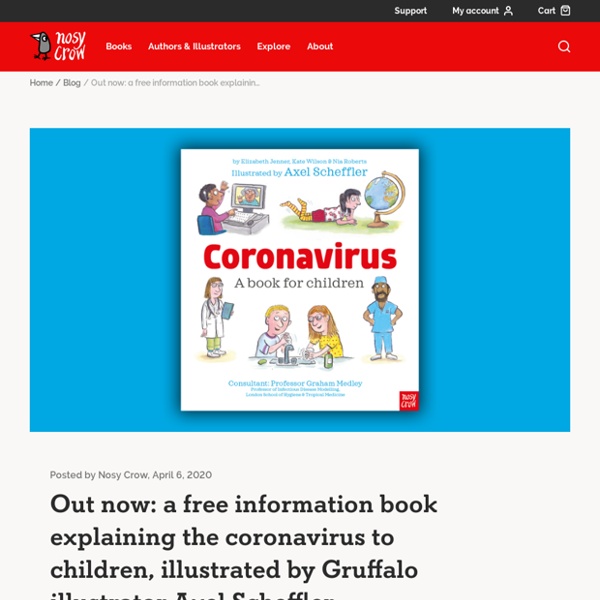Coronavirus (COVID 19): list of online education resources for home education
We have brought together an initial list of online educational resources to help children to learn at home. These websites have been identified by some of the country’s leading educational experts and offer a wide range of support and resources for pupils of all ages. The list includes subject-specific resources for: They are currently being offered for free.
How to teach children English using illustrated storybooks
What makes illustrated storybooks such a good resource for teaching young learners of English? The British Council’s Gail Ellis, co-author of a storytelling handbook for primary English language teachers, explains. Listen to an interview with Gail in our podcast and register for her webinar taking place on Thursday, 2 October. Illustrated storybooks provide an ideal resource for helping children learn English. This is because children love listening to stories.
What to consider when teaching English in large classes
How many students do you teach? Do you feel that your classes are too big? Author and education consultant Jason Anderson looks at the issues and offers some potential solutions. For many of us, our classes are larger than we would like them to be. They can present a number of challenges that teachers of smaller classes are less likely to face.
This ‘Kindness Curriculum’ Is Free And Should Be Used In Every Classroom
Imagine living in a world that valued kindness enough to teach it along with academics. Educators would teach kids to manage their emotions in addition to standard curriculum such as math and science. Sounds pretty amazing, doesn’t it? Well, the Center for Healthy Minds at the University of Wisconsin-Madison has created a free “kindness curriculum” for kids, designed to do just that. It’s a mindfulness-based curriculum for preschoolers that will bring kindness into the classroom.
21 of the Best Early Years Books for International Friendship Day
We know that skills like empathy aren’t fully developed until later in a child’s life, which is why there are so many stories on friendship and how to treat people aimed at Early Years. International Friendship Day, then, is a great opportunity to share some of these amazing books with your children. It does, however, fall on Sunday 30 July.
Protecting the psychological health of children through effective communication about COVID-19 - The Lancet Child & Adolescent Health
The attention of the world is rightly focused on measures to mitigate the transmission and economic effect of the 2019 novel coronavirus disease (COVID-19) pandemic. In this rapidly changing situation, media and social conversations are entirely dominated by the outbreak, and children are exposed to large amounts of information and high levels of stress and anxiety in the adults around them. Simultaneously, children are experiencing substantial changes to their daily routine and social infrastructure, which ordinarily foster resilience to challenging events. Danese A Smith P Chitsabesan P Dubicka B Child and adolescent mental health amidst emergencies and disasters.
The Art of Control
Executive function — our ability to remember and use what we know, defeat our unproductive impulses, and switch gears and adjust to new demands — is increasingly understood as a key element not just of learning but of lifelong success. Researchers at the Center on the Developing Child at Harvard University describe executive function as an air traffic control system for the mind — helping us manage streams of information, revise plans, stay organized, filter out distractions, cope with stress, and make healthy decisions. Children learn these skills first from their parents, through reliable routines, meaningful and responsive interactions, and play that focuses attention and stirs the beginnings of self-control.
Whole Child Development Is Undervalued
The question is how to make such an approach both systemic and sustainable. Whole Person Socio-emotional, physical, creative, and cognitive capacities are deeply intertwined and equally important in ensuring a child's wellbeing, learning, and growth. (That shouldn't be a surprise to anyone studying or supporting children's learning.) Nobel laureate James Heckman, a professor of economics at the University of Chicago, has shown that the non-cognitive skills emerging in early childhood are among the strongest predictors of adult outcomes.



